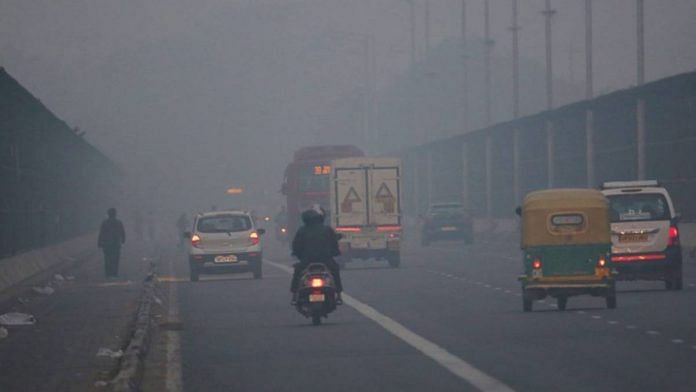New Delhi: Biomass-burning emissions rather than fireworks drive the poor air quality in the national capital during the days following Diwali, a study conducted by the Indian Institute of Technology (IIT), Delhi has found.
The study titled “Chemical speciation and source apportionment of ambient PM2.5 in New Delhi before, during and after the Diwali fireworks”, led by IIT-Delhi researchers, has shed light on the pollution sources impacting the ambient air quality in the capital before, during and after the festival.
“The team found that biomass burning-related emissions rise steeply in the days following Diwali, with average levels almost rising twice compared to the pre-Diwali concentration. Also, the source apportionment results pertaining to the organic PM2.5 indicate a significant rise in both primary and secondary organic pollutants in the days following Diwali, suggesting the role of biomass burning-related emissions in the increase of primary organic emissions and, in turn, their aged products following the Diwali festival,” Chirag Manchanda, the lead author of the study, said.
“We also found that the metal content in PM2.5 levels rose by 1,100 per cent and the fireworks alone accounted for 95 per cent of the metal PM2.5 during Diwali. However, the impact of the fireworks plummets within around 12 hours following the festival,” he added.
The research study published in the journal “Atmospheric Pollution Research” has presented source-apportionment results for highly time-resolved elemental and organic fractions of PM2.5 to address the challenge.
“Both stubble burning and increased heating requirements of the region in winter drive the biomass-burning activity. The study thus concluded that the biomass-burning emissions rather than the fireworks drive the poor air quality in Delhi during the days following Diwali,” said Vikram Singh, Department of Chemical Engineering, IIT-Delhi.
“The result of this study provides crucial insights into a topic of long-standing debate and concern between air quality experts and policymakers committed to alleviating the extreme air pollution events in the capital of Delhi following Diwali,” he added.
Also read: Pollution led to over 23.5 lakh premature deaths in India in 2019, highest in world: Lancet study



